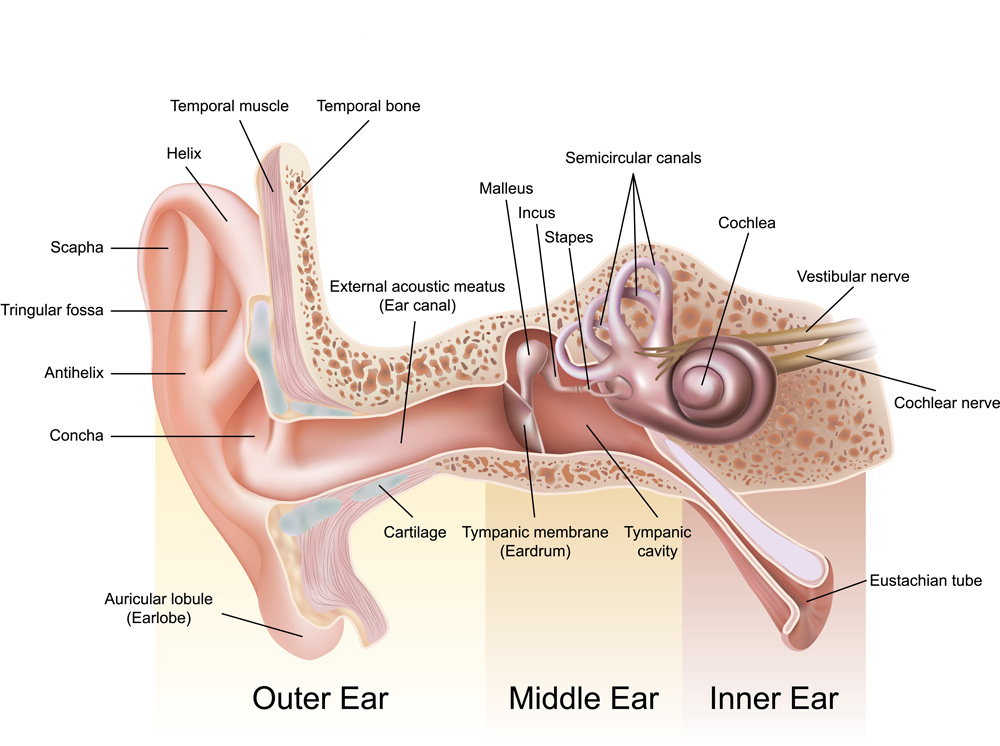The reason we lose hearing as we age
Hearing loss is a natural issue that occurs as we age and can become more severe or happen quickly depending on lifestyle, accidents, or other issues.
Our sense of hearing comes from tiny hairs within the inner ear, past the ear drum, that vibrate accordingly to sound waves that enter the ear and pass the sensory input onto the Cochlear nerve. These hairs can generally withstand up to 75 decibels and it is generally considered at exposure to sounds over 85 decibels will cause damage to these hairs, which unfortunately is irreversible at the moment. Common careers that can lead to hearing loss include: Music industry, construction, and the military. A good rule of thumb for safe volume levels is to compare it to a power drill, which is just above the threshold of safe sound levels (approximately 95 decibels).

Another form of hearing loss that is treatable is Conductive hearing loss, which is generally caused by a blockage in the ear canal such as wax or fluid, and can be easily cleared by a medical professional.
Outside of audible damage to your inner ear, there are various other reasons that hearing can be lost that include (but are not limited to):
- Family history / genetics
- Certain medicines including chemotherapy drugs
- Diseases such as:
- Diabetes
- Otosclerosis
- Ménière’s disease
- Autoimmune inner ear disease
- Acoustic neuroma
- Presbycusis
Symptoms of hearing loss
Generally symptoms of hearing loss will happen slowly over your lifetime and may not be noticeable right away as we adjust to the small decreases. A few symptoms to look for include:
- Problems with hearing regular conversation
- Asking people to repeat themselves on a regular basis
- Frustration with not being able to hear people
- Difficulty telling similar sounds apart
- Ringing in the ears
- Dullness in hearing
You may also notice yourself or loved ones with hearing problems becoming withdrawn from social activities as hearing and interacting become more frustrating or difficult, and this can lead to depression and seclusion.
Remember that most people over 50 have some level of hearing loss and that you have many options in the way of hearing aids these days, some being nearly invisible to the naked eye. Speak with your doctor if you feel your hearing has declined and a simple test can be done to assess any damage and determine if a hearing aid is needed to help you with hearing as you age.
Book Your Free Home Care Services Consultation Today.
We go above and beyond the basics in providing advanced approaches to professional home health services. In addition to specialized care at home, you can choose from a complete range of reliable and compassionate home support, companion care, or personal care at home depending on your unique needs.
